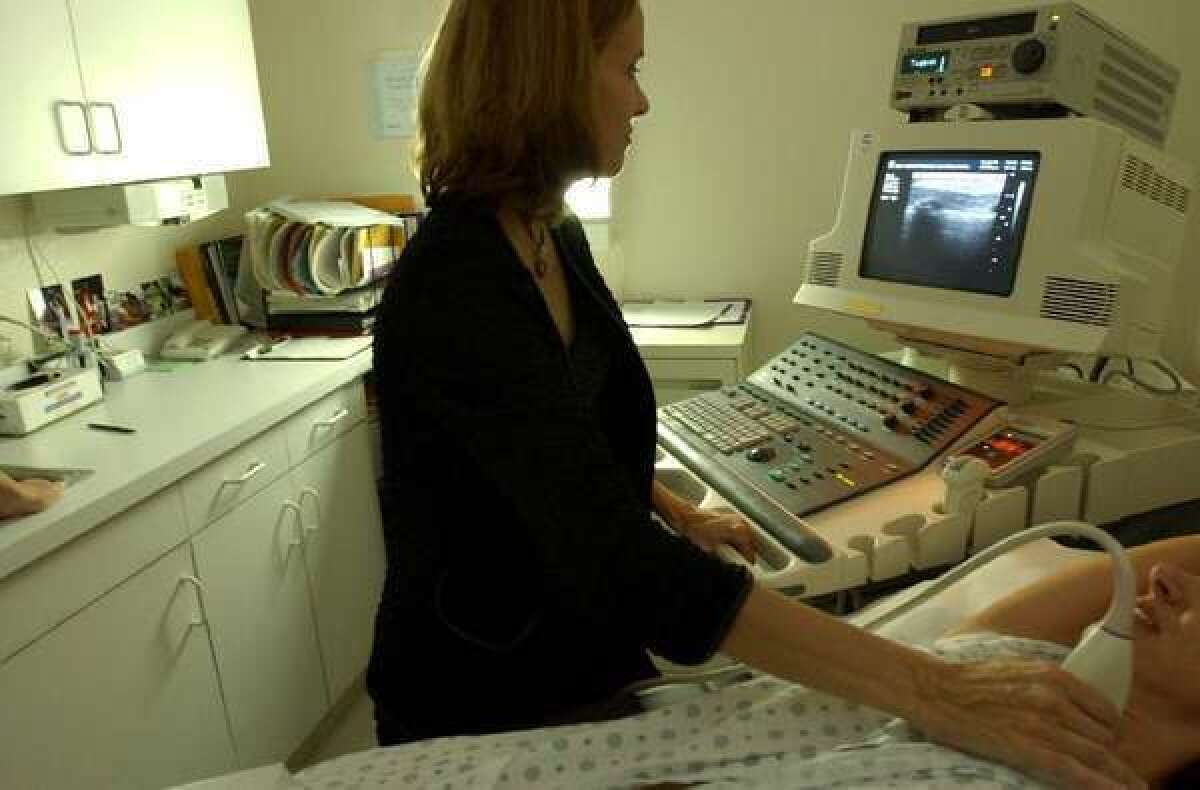Women told they have breast ‘cancer’ more likely to want surgery

Women were more likely to want surgery when they were told they had a type of breast cancer than when the diagnosis was a breast lesion or a group of abnormal cells — even though all three scenarios described the same disease. The findings, reported Monday in the journal JAMA Internal Medicine, offer a new way to gauge the power of the word “cancer.”
The words doctors use to tell a woman she has ductal carcinoma in situ can make a big difference in the treatment she chooses. Ductal carcinoma in situ, or DCIS, can be an early form of breast cancer. But in many cases, the tumor never grows beyond the milk duct where it was found. If it does invade the surrounding breast tissue, it can take as long as 40 years to do so.
All that uncertainty has led doctors to describe DCIS in a variety of ways. Sometimes they tell women that it’s a stage 0 cancer, or that it’s a noninvasive tumor. “Carcinoma” itself is synonymous with cancer. Just a few weeks ago, an expert panel convened by the National Cancer Institute recommended that the name for DCIS be changed to something that sounds less threatening. As they explained in an editorial published in the Journal of the American Medical Assn.:
“The word ‘cancer’ often invokes the specter of an inexorably lethal process; however, cancers are heterogeneous and can follow multiple paths, not all of which progress to metastases and death, and include indolent disease that causes no harm during the patient’s lifetime.”
For the new study, researchers from UC San Francisco, Massachusetts General Hospital and Duke University Medical Center recruited 394 women who were in fine health and asked them to imagine they were diagnosed with DCIS. The diagnosis was presented three ways: as “noninvasive breast cancer,” a “breast lesion” or “abnormal cells.”
In all three cases, the treatment options and outcomes were the same. Yet there were clear differences in the way women reacted:
When the diagnosis was “noninvasive cancer,” 47% of women said they would want a lumpectomy or mastectomy. (The other 53% chose medication or active surveillance.)
When the diagnosis was “breast lesion,” 34% chose a surgical option.
When the diagnosis was “abnormal cells,” 31% chose a surgical option.
“Our survey specifically reminded the participants that risks and benefits were the same among all 3 scenarios; however, excluding the word cancer in the diagnosis shifted many participants to choose a less-invasive option,” the researchers reported. They took it as a sign that many of these women really didn’t want to have surgery but were scared into picking it when they heard the word “cancer.”
ALSO:
Wanda Sykes’ double mastectomy is aggressive treatment for DCIS
Is this type of breast cancer even cancer?
In treating breast cancer’s harbinger, choice of surgeon matters
Return to Science Now.







